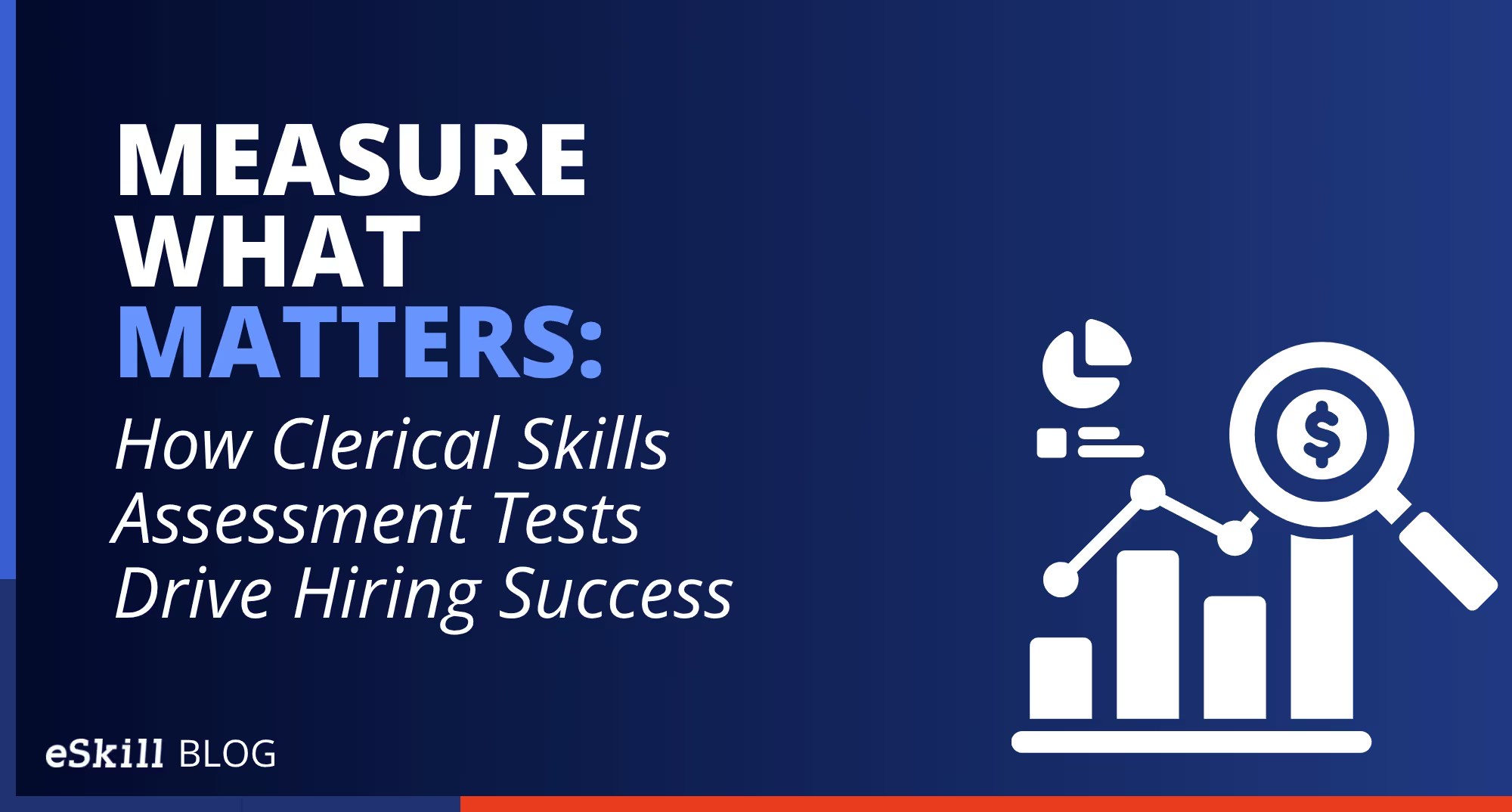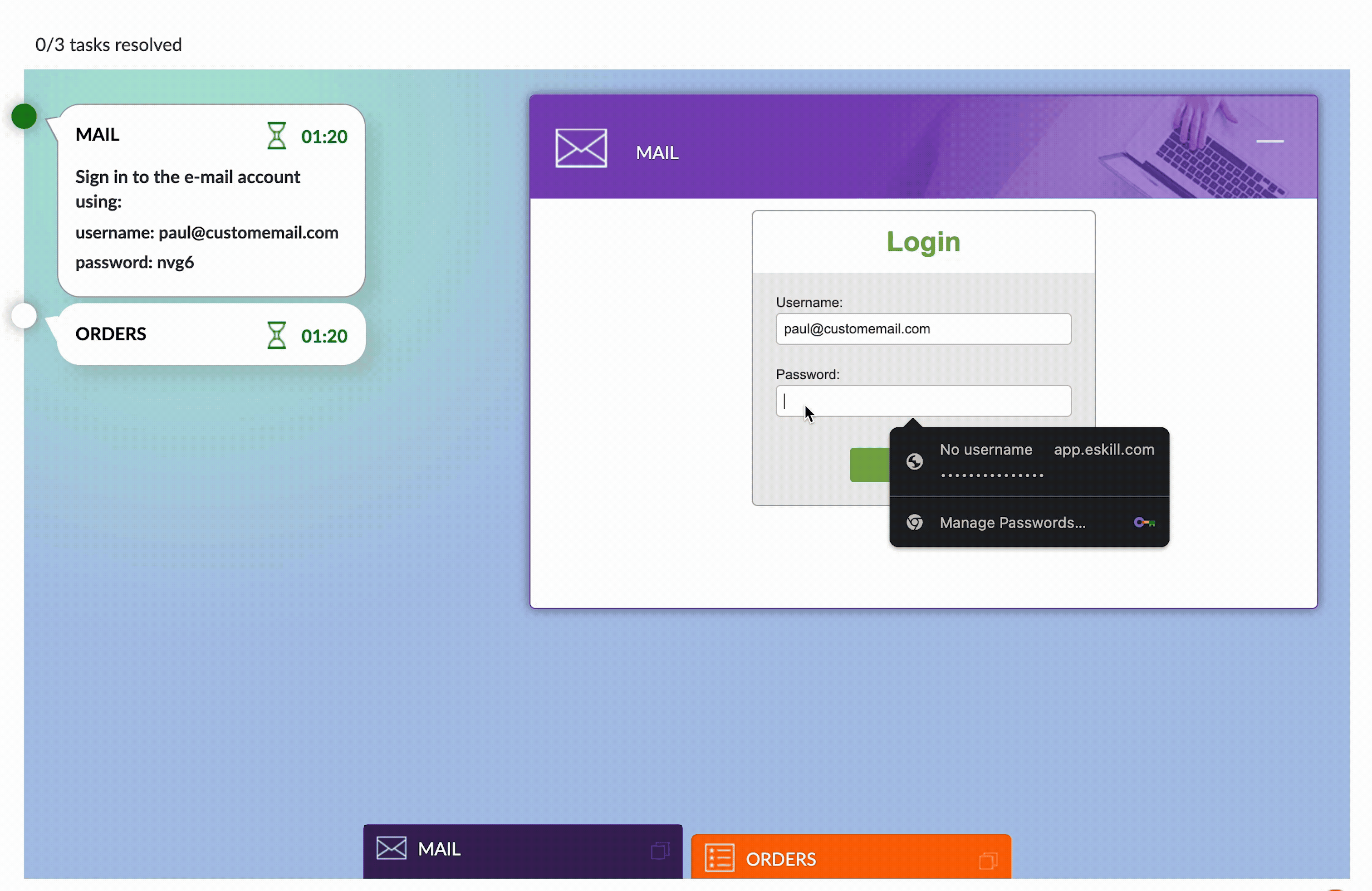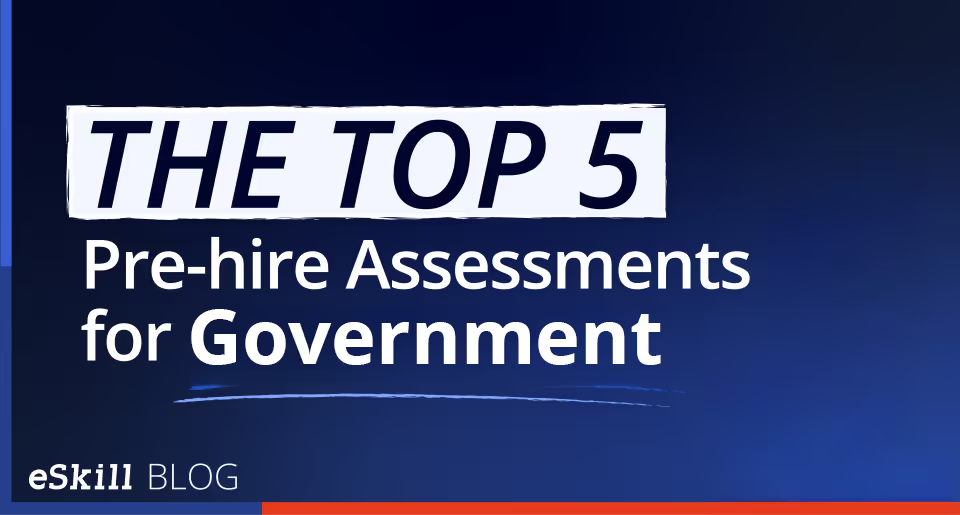Administrative employees wear many different hats. They are responsible for tasks such as working with vendors, customers, and shareholders, scheduling and managing meetings and events, conducting research and compiling reports, making travel arrangements, and maintaining appointment calendars.
In many organizations, they are the backbone that holds the company together and keeps everything running smoothly. Employees at all levels value them because they know who to call to cut through red tape and get things done.
Since administrative staff work with executives, managers, employees, and other internal and external stakeholders, they must have excellent verbal and written communication skills, be super organized, and be excellent time managers. They must also have strong computer proficiency and, in many cases, be adept at learning new computer applications and teaching others how to use them. This is why employers use clerical skills assessment tests to recruit staff for administrative roles.
What Do Clerical Skills Assessment Tests Measure?
When HR teams assess applicants for administrative jobs such as administrative assistant, data entry operator, and program coordinator, they evaluate hard skills, like computer proficiency and organizational abilities, that show which applicants can do the job. They also evaluate soft skills, like collaboration and communication style, that show whether the applicants are a good fit for the position and the company culture.
These are hard and soft skills that a clerical skills battery test should measure:
- Organizational Skills: Applicants should demonstrate that they can see the big picture but also divide large projects into small, achievable tasks and organize and manage data efficiently.
- Internal and External Communication: Candidates should be confident and at ease when interacting with senior executives, communicating with customers, suppliers, and shareholders, and working with employees at all levels.
- Time Management: Applicants should show they can prioritize projects and create to-do lists to meet critical deadlines and fulfill service level agreements (SLA).
- Computer Proficiency: Candidates must prove they are adept at using MS Word, Excel, and PowerPoint to create documents, spreadsheets, and presentations.
- Software Comfort Level: Applicants must also show they are proficient at using and learning other mainstream software applications such as Email and calendar scheduling tools (Outlook, Google Calendar), Video Conferencing applications (Zoom, GoogleMeet, WebEx), and G Suite (Google Docs, Sheets, Slides).
Which Clerical Skills Tests Should Employers Use?
Clients and prospects often ask us which clerical skills battery tests they should use to ensure successful hiring outcomes. There is no straightforward answer because it depends on the type of position you need to fill and the job requirements. These examples illustrate the importance of choosing the right clerical skills assessment tests:
Suppose you are hiring a legal secretary. You need candidates who understand legal terminology, have excellent computer proficiency, and have fast, accurate typing skills. They should have a professional phone demeanor and excellent email etiquette since they communicate with clients, court officials, and lawyers from other firms. In this case, you should build a clerical skills assessment test using questions from the eSkill Legal Typing, Administrative Assistant, MS Office, and Business Communication tests.
Assume you are recruiting candidates to fill a medical administrator position in a hospital. In this case, you would use some of the same clerical skills battery tests, like eSkill’s Administrative Assistant and MS Office, but to tailor the assessment to your needs, you could include questions from the eSkill Medical Typing, Medical Terminology, HIPAA Privacy and Security Standards, and the HIPAA Health Insurance Coverage tests.
A recruiter filling an executive assistant position needs candidates who can work effectively with senior-level executives and external stakeholders. So, a good clerical skills assessment test would include questions from the eSkill Executive Assistant, MS Office, Business Communications, Business Etiquette, and Time Management tests.
How Organizations Use Clerical Skills Assessment Tests to Improve Hiring
Businesses in virtually every industry sector use clerical skills battery tests to identify qualified candidates for administrative jobs. These organizations used clerical skills assessment tests to improve hiring outcomes, decrease time-to-hire, and reduce turnover:
- Conservice, a utility management and billing company, was using an assessment solution developed in-house, which was inconvenient because applicants had to complete clerical skills battery tests onsite and take separate MS Word and Excel tests. They upgraded to an online assessment solution that allows recruiters to create a single assessment that covers both applications. They also decreased time-to-hire by 25%.
- Chemonics implemented a pre-employment assessment solution to simplify hiring. Once it began using clerical skills assessment tests, it reduced turnover by 43% and time-to-hire to 55 days, soon to be 45 days from the initial interview to a job offer.
- Texas811 notifies the utility companies and city and county governments that are members of its network about planned excavations near their underground lines. Its hiring teams used to need six to eight weeks to fill entry-level administrative positions. After using clerical skills battery tests like typing and data entry assessments, they reduced time-to-hire by 75%.
Get Started with Clerical Skills Assessment Tests
Companies that want to hire top administrative candidates use clerical skills assessment tests to measure abilities and attributes candidates need to succeed.
Do you want to learn how clerical skills assessment tests will help you measure skills that matter and improve hiring quality? Contact eSkill to request a demo.

Get ademo.






